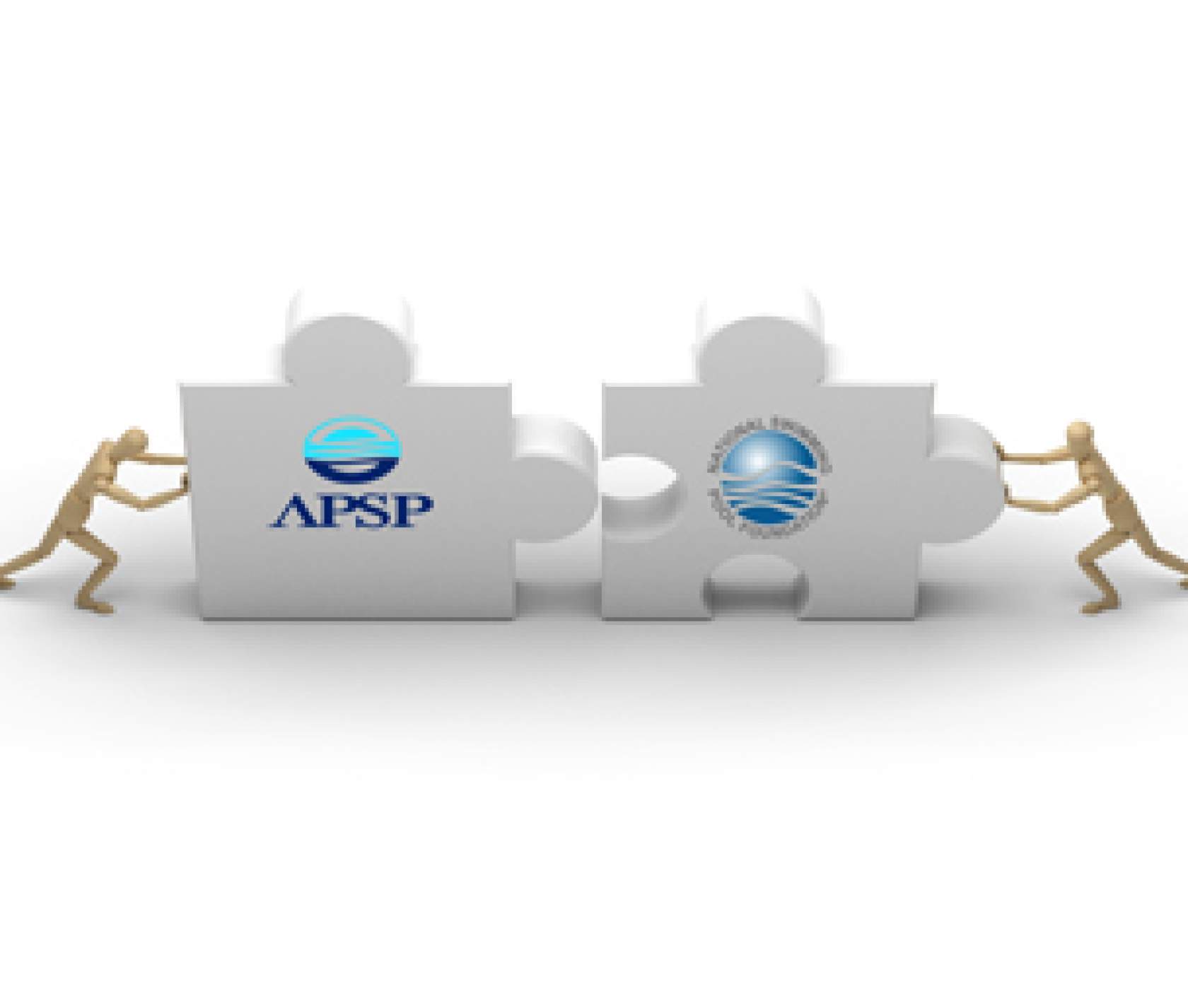US pool and spa organisations NSPF and APSP agree to merge in historic decision


Following a marathon April meeting in Colorado Springs, USA, the boards of the two dominant organisations in the American swimming pool and spa industry have agreed in principle to unify.
The Association of Pool & Spa Professionals (APSP) mainly covers the residential swimming pool and spa market across the country, while the National Swimming Pool Foundation (NSPF) has traditionally been associated with research in the commercial swimming pool and aquatics arena, although the recent acquisition of Genesis has also given them a foot in the residential sphere.
The boards issued a joint statement saying the merger will better support the present and future needs of the industry, and that a process is underway to plan and implement this merger of equals.
Rich Garbee, APSP chairman of the board, and Bruce Dunn, NSPF chairman of the board, jointly say in the statement: “The aquatics industry has seen dramatic changes over the past 10 years. APSP and NSPF each have a distinguished history of service to our industry. We are excited to build a vision where we can achieve even more together.”
A long gestation
SPLASH! spoke with NSPF chairman Bruce Dunn following the announcement. He says the idea of a merger had simmered for just under a year, and that once the Genesis acquisition had been successfully completed, they focussed on moving forward with this opportunity.
The two boards met at the national trade show, followed by further long discussions between the two chairmen with the result that they both agreed that their respective stakeholders had sufficient interest to pursue the merger.
Then, over three days beginning on April 6, discussions began in earnest.
“If you’re going to go dinner and you never set the table you’re not going to get fed,” says Dunn.
“So we all got out there, starting on Wednesday night, then all day Thursday and Thursday night, and into Friday. At two o’clock on Friday we said we needed to make an announcement that we have an in-principle agreement to merge for the good of the industry as a whole.”
He says that up until last year when they completed the acquisition of Genesis, the NSPF had really been just a commercial oriented institution with a focus on research to keep pools open and people swimming.
“The acquisition of Genesis was very exciting because the program had a tremendous residential following and it provided great balance in our organisation. Two weeks ago we had a Genesis strategy session in Colorado Springs for two days and it was an absolutely encouraging group of sessions where people were almost giddy about how exciting the program was.”
In 1998 Genesis ruffled feathers when they originally took on the NSPI, which was the earlier incarnation of the APSP, but Dunn says that is all in the past now.
“They just took a trip around the world and came back to the same spot. They approached an organisation with an idea and the organisation said no. So they did it themselves! That’s old news. In the conversations we had in the past week, we said to everyone to leave your baggage at home, what we need is vision and thought and honesty and open-mindedness.”
He says he has been impressed and enthused by the way the participants in the discussions have put aside any “turf protection” for the good of the industry, boding well for the progress of future discussions.
Where from here?
There are many questions surrounding the details such as where the organisation will be centred, what will happen to existing management and staff of the two bodies and what approach will be taken with educational programs.
Dunn says that it is still early days, and those details will be ironed out in due course.
“The honest answer to all these is we couldn’t eat the elephant in one bite. We first had to decide if there is a true interest in the merger of equals. But until you look at the process from 30,000 feet you get stuck in all the details. We’re making the announcement to say this is where we’re going, and it’s out in front of everyone. We’re doing our due diligence on how you formulate a unified functional entity that allows for a non-profit organisation that is a foundation on the one hand and an association on the other. And we will create a business plan to work out how that will happen.”
Regarding management and staff, he says that at this point there are two entities with programs that are already in place that have very key people operating those organisations.
“The key is to not take the eye off the ball and for the CEOs and staff in general to keep doing what they do best – and while they work in the business, it’s the boards’ challenge to work on the business.”
He says there is a general consensus that it will probably take somewhere between 12 months and 18 months to work through the due diligence and formulate a collective business plan, although that timeline is not written in stone.
“There will be some things we don’t know and some challenges that have to be met, but when I saw the quality of the vision, the openness and honesty of the people from diverse backgrounds involved in the discussions, it really is promising.”
The NSPF and its Genesis arm are increasingly reaching more of a global audience. This merger may see a growth in the international influence of the APSP's expertise as well.
“Here’s a pool industry talking about unifying and putting a very specific voice out to the public – and it’s not just the national public, it’s a global public,” he says.
“When you think about all the places in the world where people find themselves immersed in water, there’s a common thread and a global thread to that.”




